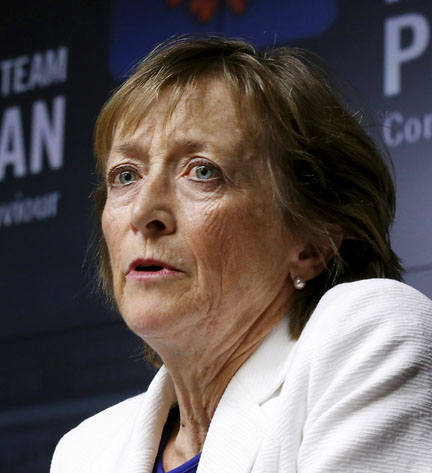The Canadian Armed Forces will act decisively to clamp down on sexual harassment and misconduct after an investigation revealed an underlying sexualized culture that is hostile to women and gays in the armed forces, a top official said on Thursday.

The probe, conducted by former Supreme Court of Canada justice Marie Deschamps, discovered a broadly held perception in the lower ranks that those higher up the chain of command either condone inappropriate sexual conduct or are willing to turn a blind eye.
General Tom Lawson, chief of the defence staff, called the findings disturbing and said the armed forces would conduct a comprehensive review of how better to prevent harassment and also help those who have been assaulted.
“This is a problem we have to act decisively to address,” he told a news conference. “For an institution such as ours, one built on camaraderie and trust, this underlying sexualized behavior is corrosive.”
Most cases of sexual harassment and assault in the armed forces are not reported, often due to fear that it would have a negative repercussion on the victim’s career, the report found.
In the United States, the Pentagon is cracking down on sexual assault following a spate of high-profile incidents. Last week the U.S. defence secretary said the military’s sexual assault problem could drive away new recruits.
The Canadian report said the sexualized environment was characterized by frequent use of swear words and degrading expressions about women’s bodies, sexual jokes and innuendo, and unwelcome sexual touching.
“It is not enough to simply revise policies or to repeat the mantra of ‘zero tolerance,’” the report said. “Leaders must acknowledge that sexual misconduct is a real and serious problem.”
Victims were also concerned about not being believed and feared a lack of confidentiality.
There were also reports of “quid pro quo sexual harassment,” such as “dubious relationships” between lower-ranking women and higher-ranking men.
The report, which was commissioned last April, laid out 10 recommendations, including the creation of an independent center for accountability outside of the armed forces that would receive complaints of harassment and provide victim support.

 The probe, conducted by former Supreme Court of Canada justice Marie Deschamps, discovered a broadly held perception in the lower ranks that those higher up the chain of command either condone inappropriate sexual conduct or are willing to turn a blind eye.
The probe, conducted by former Supreme Court of Canada justice Marie Deschamps, discovered a broadly held perception in the lower ranks that those higher up the chain of command either condone inappropriate sexual conduct or are willing to turn a blind eye.